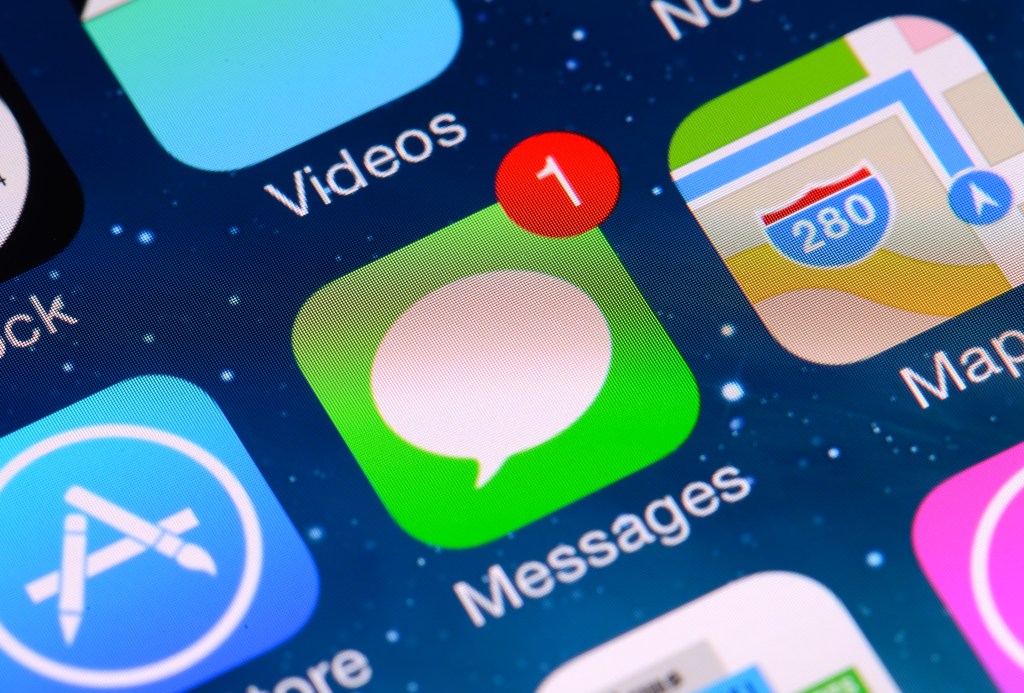The United States Department of Justice filed an antitrust lawsuit against Apple earlier today. The suit touches on several (allegedly) anticompetitive practices. But one category in particular caught our attention as the DOJ spends quite a bit of time talking about “green bubbles” and “blue bubbles.”
When an iPhone user sends a message to another iPhone user, by default that message is sent using Apple’s iMessage protocol. This protocol offers several advantages, such as end-to-end encryption (although iCloud backups are not encrypted by default, but that’s another story), read receipts, typing indicators and high-quality photos and videos.
If an iPhone user texts an Android user — and vice versa — iOS falls back to the older, less secure but universal SMS protocol. Messages appear in green bubbles.
“This effect is particularly powerful for certain demographics, like teenagers — where the iPhone’s share is 85 percent, according to one survey,” the DOJ wrote in its lawsuit.
While this separation in two classes is mostly anecdotal, it becomes a bit more problematic once you start creating group chats. Let’s say everybody in your family has an iPhone. You can start an iMessage group and use it for your family discussions.
But when it’s time to get a new phone, you either have to buy an iPhone again or tell your family that they should all move to another messaging app that supports group chats, such as WhatsApp, Messenger, Telegram or Signal. That’s because iMessage is only available on the iPhone and other Apple devices.
In a 2013 email quoted in the lawsuit, Apple’s SVP of Software Engineering Craig Federighi said that iMessage on Android “would simply serve to remove [an] obstacle to iPhone families giving their kids Android phones.”
“Moving iMessage to Android will hurt us more than help us,” former SVP of Worldwide Marketing Phil Schiller wrote in another email.
But the DOJ also feels like Apple is treating third-party messaging apps as second-class citizens. “Apple makes third-party messaging apps on the iPhone worse generally and relative to Apple Messages, Apple’s own messaging app,” the DOJ wrote in its lawsuit. For instance, you can’t set another app as the default app to send and receive SMS messages.
“As a result, third-party messaging apps cannot combine the ‘text to anyone’ functionality of SMS with the advanced features of OTT messaging . . . By contrast, if an Apple Messages user wants to send somebody a message, they just type their phone number into the “To:” field and send the message because Apple Messages incorporates SMS and OTT messaging,” the DOJ wrote.
At this point, you might think: Wasn’t the RCS protocol supposed to level up SMS messaging and alleviate these pain points? RCS supports group messaging for instance. The thing is, Apple has been dragging its feet when it comes to RCS support, saying that it’s not end-to-end encrypted by default.
While this is true, RCS is supposed to replace SMS, not iMessage. Moreover, Apple recently announced that it would add support for RCS. But that’s because RCS will become mandatory in China.
As WhatsApp and Signal have demonstrated, cross-platform end-to-end encryption is possible at scale. In fact, WhatsApp will become interoperable with other messaging apps due to the Digital Markets Act (DMA) in the EU. WhatsApp plans to keep end-to-end encryption by leveraging the Signal protocol with other messaging services.
It feels a bit odd that the DOJ is front-loading its antitrust lawsuit against Apple with the much talked about “green bubbles” vs. “blue bubbles” debate as there are far more serious and substantive issues. But the combination of the DMA in Europe and today’s new lawsuit is a clear sign that Apple’s ecosystem is drawing the interest of regulators around the world.
For more on Apple’s antitrust lawsuit, check here:
- Apple sued by DOJ over iPhone monopoly claims
- Why Apple’s antitrust lawsuit could be a silver lining for Epic Games
- Apple’s iPhone is not a monopoly like Windows was a monopoly
- Epic, Spotify, Deezer, Match Group and others applaud DOJ’s Apple lawsuit
- DOJ calls out Apple for breaking iMessage-on-Android solution, Beeper
- Here’s what the DOJ suit could mean for Apple Watch
































Comment